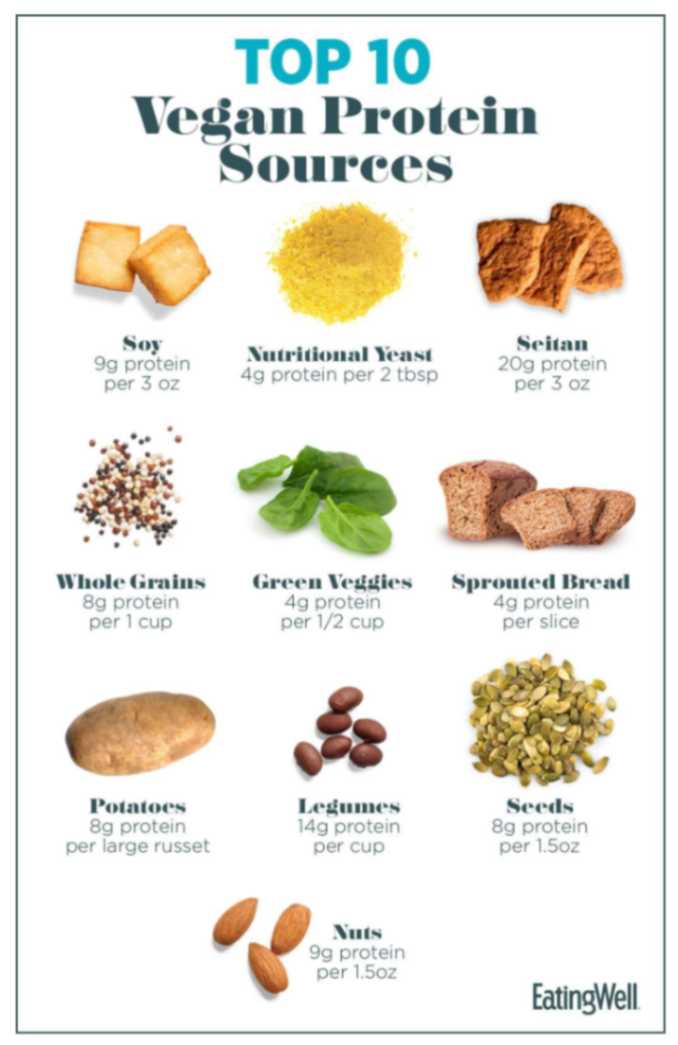For vegetarians, getting enough protein is essential, and there are plenty of excellent sources available. Here are some points for Vegetarian High protein sources.
Lentils:
Packed with protein and fiber, lentils are versatile and can be used in soups, salads, and stews. They are an example of foods that provide a significant g of protein per cooked serving, essential for a meatless food.
Beans:
Varieties like black beans, chickpeas, and kidney beans are great protein sources and can be included in numerous dishes to help meet daily protein requirements in a meatless food.
Tofu, Tempeh, and Edamame:
These soy products are excellent for protein, offering up to 18 grams of protein, and can be used in a variety of recipes, from stir-fries to salads.
Nuts and Seeds:
Almonds, peanuts, chia seeds, and hemp seeds are protein-rich and make great snacks or additions to meals.
Quinoa:
A complete protein, quinoa contains all nine essential amino acids and can be used as a base for many dishes.
Greek Yogurt:
High in protein, Greek yogurt is perfect for breakfast or as a snack.
Cottage Cheese:
Another dairy option, cottage cheese is rich in protein and can be eaten on its own or added to other dishes.
Nutritional Yeast:
Often used as a cheese substitute in a vegan diet, nutritional yeast is a great way to add protein, B vitamins, and flavor to meals.
Seitan:
Made from wheat gluten, seitan is very high in protein and can be used as a meat substitute in various recipes.
These sources ensure that vegetarians can meet their protein needs without consuming meat, often including components also rich in zinc and selenium.
A note on processed foods
Processed foods have become a staple in many diets due to their convenience, but they come with several health risks. Here are some key points about processed foods:
Nutrient Loss:
Processing often removes essential nutrients such as vitamins, minerals, and fiber, which can decrease the overall nutritional value of the food.
Added Ingredients:
Many processed foods contain added sugars, salts, and unhealthy fats, which can contribute to health problems like obesity, high blood pressure, and heart disease.
Increased Risk of Chronic Diseases:
Regular consumption of ultra-processed foods is linked to a higher risk of developing conditions such as type 2 diabetes, cardiovascular diseases, and certain cancers.
Safety Concerns:
Processing can sometimes introduce harmful substances or reduce the safety of food, posing additional health risks.
Weight Gain:
Highly processed foods are often calorie-dense and low in nutrients, contributing to weight gain and obesity. Conversely, incorporating high-protein foods in your meal, including vegan protein sources like lentils and nutritional yeast, can help in managing weight effectively and meeting daily protein needs in a meatless manner.
Understanding these risks can help individuals make healthier food choices and limit their intake of processed foods.
Nutritional yeast
Nutritional yeast is a deactivated yeast, often a strain of Saccharomyces cerevisiae, which is not only a treasure trove of B vitamins but also a good source of zinc and protein. That is commonly used as a dietary supplement or a flavor enhancer in various dishes. Here are some key points about nutritional yeast:
Rich in Nutrients:
Nutritional yeast is an excellent source of protein, fiber, and several essential vitamins and minerals, particularly B-vitamins, including B12, which is essential for vegans.
Health Benefits for Vegetarian:
Immune Support:
It contains antioxidants that can help boost the immune system.
Digestive Health:
The fiber content aids in digestion and supports a healthy gut, important in a vegan lifestyle.
Energy Boost:
The B-vitamins in nutritional yeast help increase energy levels.
Uses in Cooking:
Nutritional yeast has a cheesy, nutty flavor, making it a popular ingredient in vegan dishes, and a great source of vegan protein. It can be sprinkled on popcorn, added to sauces, or used as a topping for pasta and salads.
Low in Sodium and Fat:
Despite its savory flavor, nutritional yeast is naturally low in sodium and fat, making it a healthy seasoning option and a favorite among vegan.
Overall, nutritional yeast is a versatile and nutritious addition to any food, offering numerous health benefits and culinary uses.
Protein-rich fruits and vegetables
Including protein-rich fruits and vegetables in your food can help ensure you get essential nutrients while maintaining a healthy, balanced diet. Here are some notable options:
Vegetables
Green Peas: Contain about 8 grams of protein per cup, showcasing their role in enhancing protein intake within a plant-based food.
Spinach: Offers around 5 grams of protein per cooked cup.
Artichokes: Provide approximately 4 grams of protein per medium artichoke.
Sweet Corn: Has about 5 grams of protein per cup.
Brussels sprouts are excellent plant foods that are not only rich in fiber but also provide a good amount of protein, aligning with vegetarian dietary needs.: Provide about 4 grams of protein per cup.
Broccoli: Offers about 3 grams of protein per cup.
Mushrooms, also a good source of selenium, enhance the nutritional value of vegan meals.: Contain around 3 grams of protein per cup.
Fruits
Guavas: Provide about 4 grams of protein per cup.
Avocados: Contain around 3 grams of protein per cup.
Apricots: Offer approximately 2 grams of protein per cup.
Kiwifruit: Contain about 2 grams of protein per cup.
These fruits and vegetables not only supply protein but also deliver a variety of vitamins, minerals, and fiber, making them excellent additions to a healthy food.
High-fiber vegetables to include in your diet
Adding high-fiber vegetables to your diet can greatly benefit your digestive health and overall wellness. Here are some top high-fiber vegetables:
Artichokes: One of the highest fiber vegetables, providing about 10 grams per medium artichoke.
Brussels sprouts: Contain around 4 grams of fiber per cup.
Kale, a plant-based food, is rich in protein and other nutrients, making it an essential part of a vegetarian diet.: Offers about 2.6 grams of fiber per cup.
Sweet Potatoes: Provide approximately 4 grams of fiber per medium-sized potato.
Collard Greens: Contain about 5 grams of fiber per cup when cooked.
Beets: Provide around 3.8 grams of fiber per cup and are considered good foods for adding a healthy amount of protein to the food.
Beet Greens: These greens offer about 4.2 grams of fiber per cup, making them excellent plant foods for adding both fiber and protein to a healthy food
Acorn Squash: Contains around 9 grams of fiber per cup.
Broccoli: Provides about 2.6 grams of fiber per cup.
Asparagus: Offers about 2.8 grams of fiber per cup.
Peppers: Contain approximately 2.5 grams of fiber per cup, also noting that one cup of oat bran is also a good source of fiber.
Cauliflower, also a good source of fiber, enhances a vegan diet.: Provides about 2.1 grams of fiber per cup.
Incorporating these vegetables into your meals can help meet your daily fiber requirements, promoting better digestion and overall health.
Chia seeds proteins
Chia seeds are a fantastic source of protein, making them a valuable addition to a balanced food. Here are some key points about the protein content in chia seeds:
Protein Content: Chia seeds contain approximately 16.5 grams of protein per 100 grams, also rich in zinc and selenium. This makes them a significant source of plant-based protein, suitable for vegans.
Amino Acids: Chia seeds provide a good balance of essential amino acids, which are the building blocks of protein, and are an excellent food for increasing protein intake in a vegan food. This helps in muscle repair and growth.
Nutritional Benefits: Besides protein, chia seeds are rich in fiber, healthy fats, and essential minerals like calcium, magnesium, and phosphorus. They are also known for their high antioxidant content.
Health Benefits: The protein in chia seeds can support muscle maintenance, improve bone health, and aid in overall metabolic functions. They are also beneficial for digestive health due to their high fiber content.
Incorporating chia seeds into your food is easy as they can be added to smoothies, yogurt, salads, and baked goods, providing a nutritional boost.
Beans Protein-rich
Beans and legumes are excellent making them a staple in many diets, especially for vegans, as they are considered to be one of the best origin of protein, with much protein provided per cup. Here are some of the top protein-rich beans and their protein content, noting the importance of these foods in a plant-based diet for maintaining adequate protein intake:
Soybeans, also a good source of protein, are essential in a vegetarian or vegan diet.: One of the highest in protein, soybeans offer about 36 grams of protein per 100 grams, making them a high-protein food option in a vegetarian diet.
Lentils: Cooked lentils provide approximately 9 grams of protein per 100 grams.
Chickpeas (Garbanzo Beans), containing about 8 grams of protein per cup, are a staple in vegetarian or vegan diets.: These contain about 19 grams of protein per 100 grams, making them a good source of plant protein.
Kidney Beans: Kidney beans have around 24 grams of protein per 100 grams.
Black Beans: A 1-cup serving of cooked black beans offers about 15 grams of protein.
Mung Beans: Mung beans provide about 24 grams of protein per 100 grams, highlighting their importance in increasing protein intake in a plant-based diet.
Navy Beans: Navy beans contain approximately 22 grams of protein per 100 grams.
Pinto Beans: These beans offer about 21 grams of protein per 100 grams.
These beans not only provide substantial protein but also come with various other nutrients such as iron, potassium, and fiber, making them highly nutritious and beneficial for overall health.
Wild rice
Wild rice is a highly nutritious whole grain known for its various health benefits. Here are some key points about wild rice: it’s a great source of protein for vegetarians, providing a substantial amount of protein.
Nutrient-Rich: Wild rice is high in protein, offering around 8 grams per cooked cup. It also provides essential nutrients such as fiber, folate, and magnesium, making it a beneficial addition to vegetarian or vegan diets.
Antioxidant Properties: It has 30% more antioxidant activity compared to white rice, which helps in protecting cells from damage and is a great plant-based food for getting protein.
Low Glycemic Index: Wild rice has a low glycemic index, making it a suitable choice for managing blood sugar levels.
Weight Management: Due to its high fiber and protein content, wild rice can aid in weight loss and help maintain a healthy digestive system.
Heart Health: Its lipid-lowering properties and rich fiber content contribute to better heart health by reducing cholesterol levels, making it a beneficial component of a vegan diet. Soy milk is also a great addition to a heart-healthy diet.
Versatility: Wild rice can be used in various dishes, from salads to soups, providing a nutty flavor and chewy texture.
Incorporating wild rice into your diet can provide numerous health benefits while adding variety to your meals.


















